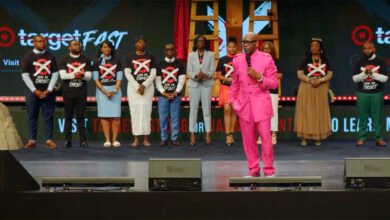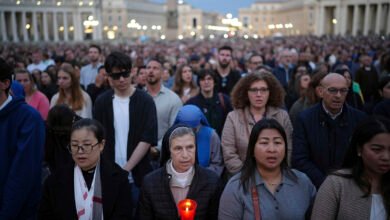(RNS) — At the height of the COVID-19 pandemic, the Netflix reality series “Indian Matchmaking” glued people across the world to their television screens. Indian or not, viewers found themselves rooting for the hopelessly romantic (and wealthy) couples matched by “Mumbai’s premier matchmaker,” Sima Taparia.
“You won’t get a 100% match. If 60-70% of your criteria are met, you should proceed,” Taparia told viewers.
That was 2020. Four years later the discourse in the Indian diaspora is still buzzing over Taparia’s views, which many say are — even for the world of matrimonial matchmaking — overly traditionalist. Taparia is accused of telling high-achieving young women they are “too picky” while advising they give in to young men’s laundry list of demands and occasionally blatant instances of colorism.
But “Indian Matchmaking,” even with its faults, did succeed in bringing the centuries-old practice to the foreground, and according to Indian matchmakers, fueling its comeback in the United States.
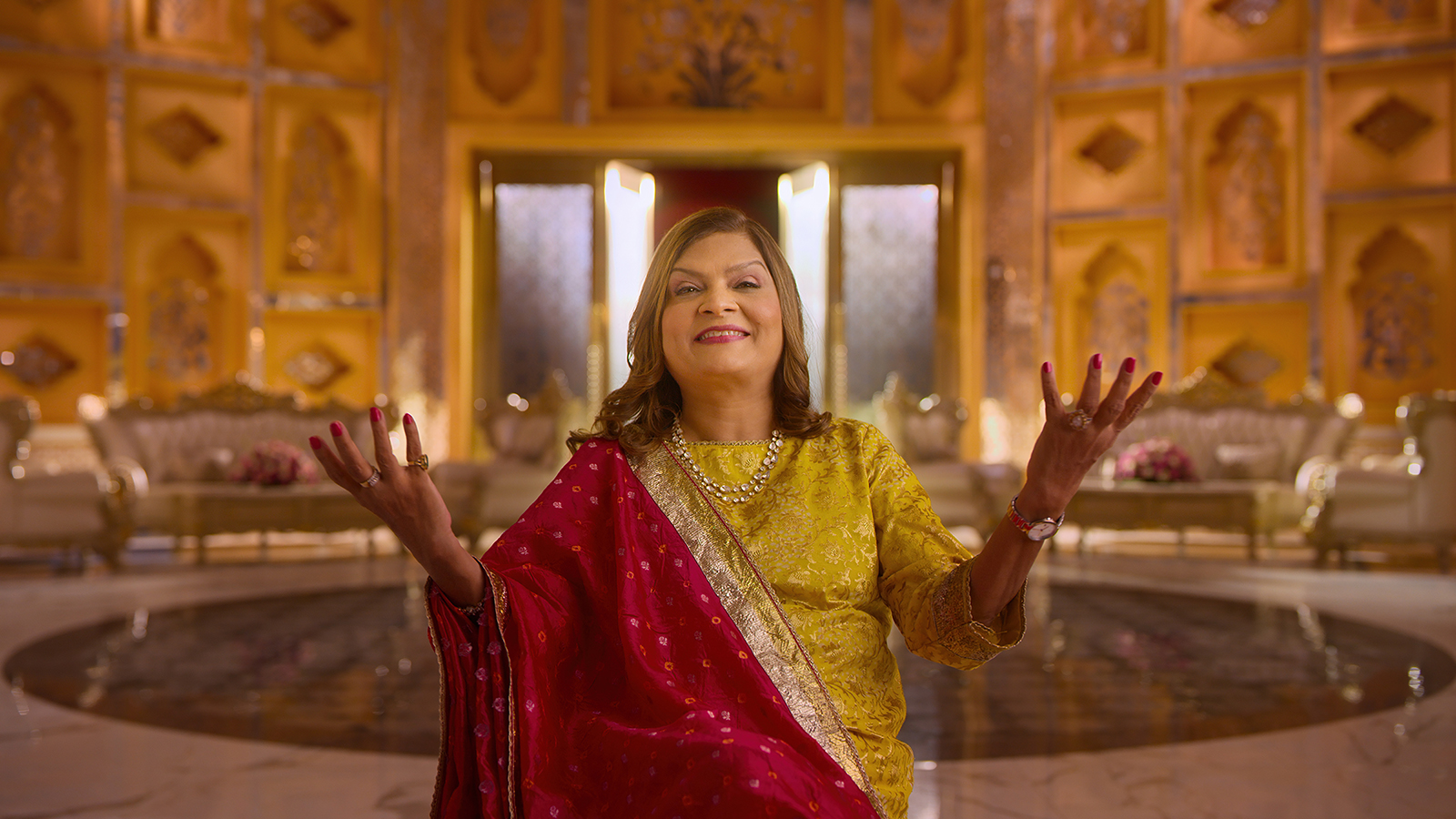
Matchmaker Sima Taparia — or Sima Aunty — in “Indian Matchmaking.” (Photo courtesy of Netflix © 2023)
It only needed a nudge, said Aparna Basker, CEO of BanyanWay, a U.S.-based matchmaking agency founded in 2017. “Something is not working in the current dating system,” she said. “That is why they are turning back to their roots, to something that has been working for a long, long time back in India.”
According to a 2018 survey, an estimated 93% of marriages in India are arranged by paid matchmakers or parents, both of whom tend to stress a future spouse’s education, family background and location. The divorce rate in India, arranged marriage proponents like to point out, is the lowest of any nation in the world.
Millennials in the Hindu diaspora still cling to what agencies such as Vows for Eternity would call misconceptions. Marketed toward “elite Indians” in the U.S., United Kingdom, Canada and Australia as well as India, Vows for Eternity works to dispel the myths surrounding modern matchmaking. The organization makes matches based on “mindsets, values and personalities,” rather than achievements and appearances alone.
“The sense young people have about matchmakers is that it’s going to be some auntie that’s going to introduce you to four boys, and then your parents are going to ask you what you think after you’ve met the boy three times,” said Rachna Prasad, head of business operations for Vows for Eternity.
The company offers their Signature Service clients the personalized guidance of a Wellness Panel, which includes a certified nutritionist, therapist, wardrobe stylist and astrologist. Their top service, membership in the “Luminary League,” is available to families or individuals with a net worth of $30 million.
As online dating continues to gain prominence in the United States, says Prasad, more young people are burning out on “being swiped through.” Dating apps don’t give a full sense of compatibility, especially for children of Indian parents who believe marriage is best between families of similar socio-economic status.

(Image by Mohamed Hassan/Pixabay/Creative Commons)
Apps have also made users vulnerable to “ghosting,” Prasad says, which can lower self-esteem and hope.
Since the pandemic, “people feel they’ve lost time,” said Prasad. “That has sort of pushed people into a place where they’re sick of browsing the apps and are turning to places like us because they’ve realized that it’s okay to ask for help.”
Marriage in the Indian tradition, said Basker of BanyanWay, is a family affair. A wedding, which for both Hindus and Muslims is typically three or more days long, is a “once-in-a-lifetime” event, so parents leave no stone unturned to find the right partner for their child.
That’s where a matchmaker who can vet parents’ “awkward” requirements of religious background or dietary preferences can come in handy before the first date.
“We are trying to bridge the gap between traditional matchmaking and Western dating,” said Basker, who launched his agency after talking to Indian immigrant parents like herself. “We are not saying that your parents will make the decisions, or your parents are going to be nosy or poke into your life, but you do have your family and network that you can tap into.”
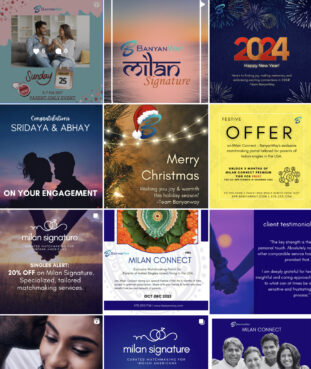
Instagram posts by BanyanWay. (Screen grab)
Young Indian Americans are still overwhelmingly marrying within their culture, Basker said. But many, she said, struggle to find someone they love and get their parents’ approval. BanyanWay, which offers a mobile app for singles and a corresponding website for families, is intended to combine a family-oriented process and the independence young Americans crave.
Through the matchmaking process, she said, she often sees a “transformation” to maturity in her clients.
“When you’re trying to find a long-term relationship, it’s a process where you understand what is very important in life,” said Basker. “What are some of the things that you can compromise on, or what are some of the things you can let go of? All these things — education, jobs, salary, height, looks — are all peripherals.”
And yet, Baskar and Prasad agree, for ambitious American children of Hindu Indian immigrants, who make up the highest-earning demographic population in the U.S., love often remains on the back burner. Many who reach out to matchmakers, they say, have never been in a relationship. As Baskar puts it, they have never “fallen multiple times to get up and learn to work better.”
“Parents have said concentrate on your studies and work really hard to make something of yourself, and children have done that,” said Prasad. “But they have ignored their social lives. They have not actually built those relationships growing up. And now all of a sudden there’s a parent telling them, ‘So why haven’t you found anyone?’”
Now, high-achieving Indians are putting themselves out there with the help of the Mohan Matchmaking Convention, the largest South Asian dating event in the world. “There’s a stigma to matchmaking conventions,” said Anip Patel, founder of Mohan Matchmaking, which hosted its second annual event in early February in New York. With a highly selective application process that winnows 12,000 applicants down to 1,000, the convention aims to rid such events of a reputation of attracting a “certain kind” of individual, he said.
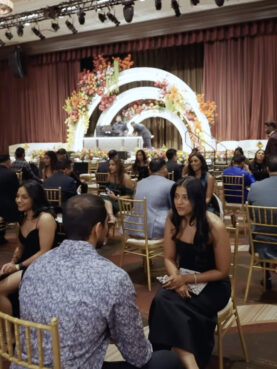
People attend a Mohan Matchmaking Convention. (Video screen grab via Mohan Matchmaking)
The convention includes a weekend’s worth of speed-dating, social mixers, dance lessons, cocktail hours and an after-party for almost $500. But Patel notes that many repeat attendees have increasingly unattainable criteria for right matches, from 40-year-old men who want only 33-35-year-olds to people with the surname Patel who only want other Patels. Some 70% prefer to stick to their own religious community, he says.
According to a survey from last year’s convention, 60% of people met someone they liked, 18% were still talking after three months and five couples became engaged. “If we can make 1,000 brown people happy, that would be the best-case scenario,” said Patel, but he inevitably fields complaints from frustrated attendees who didn’t end up with a new potential love, or about “cold beans” or “loud music.” “We are spending out of pocket, you know, millions of dollars trying to make this a thing,” he added. “People think I’m crazy.”
“It looks glamorous, but there’s a lot behind the scenes,” said Patel, who adds he has refused several offers for the convention to be televised, saying his client base is “classy” people who don’t want their private lives broadcast.
Like Netflix’s Taparia, Patel agrees no one should expect to get 100% of what you want from matchmaking (especially if it’s a 6-foot-tall, Ivy League-educated doctor), but Prasad, of Vows for Eternity, said compromise isn’t always necessary. “This is somebody you want to spend the rest of your life with; of course you’re going to be picky. At the end of the day, I always say, ‘You should be.’”
Prasad clarifies, too, that matchmaking is not the same as an arranged marriage.
“We make very clear that we make introductions,” she said. “We do not arrange marriages. We always tell them, you have all the time in the world. Nobody is asking you to do anything. Nobody is pushing you into any corners.”
Anu Ganesh, chief relationship and growth officer of BanyanWay, adds that even some of their success stories are hesitant to admit they used the service. Most people want to meet their spouse organically. “Everyone would love that iota of romantic love,” she said.
“But in the matchmaking process, we have seen people fall in love with each other slowly. It may not be just the first time they talk, but over time, we’re seeing how they get to know each other. And you know, then we meet them after years, and they’re still in love with each other. It makes it all worth it.”
Source link

